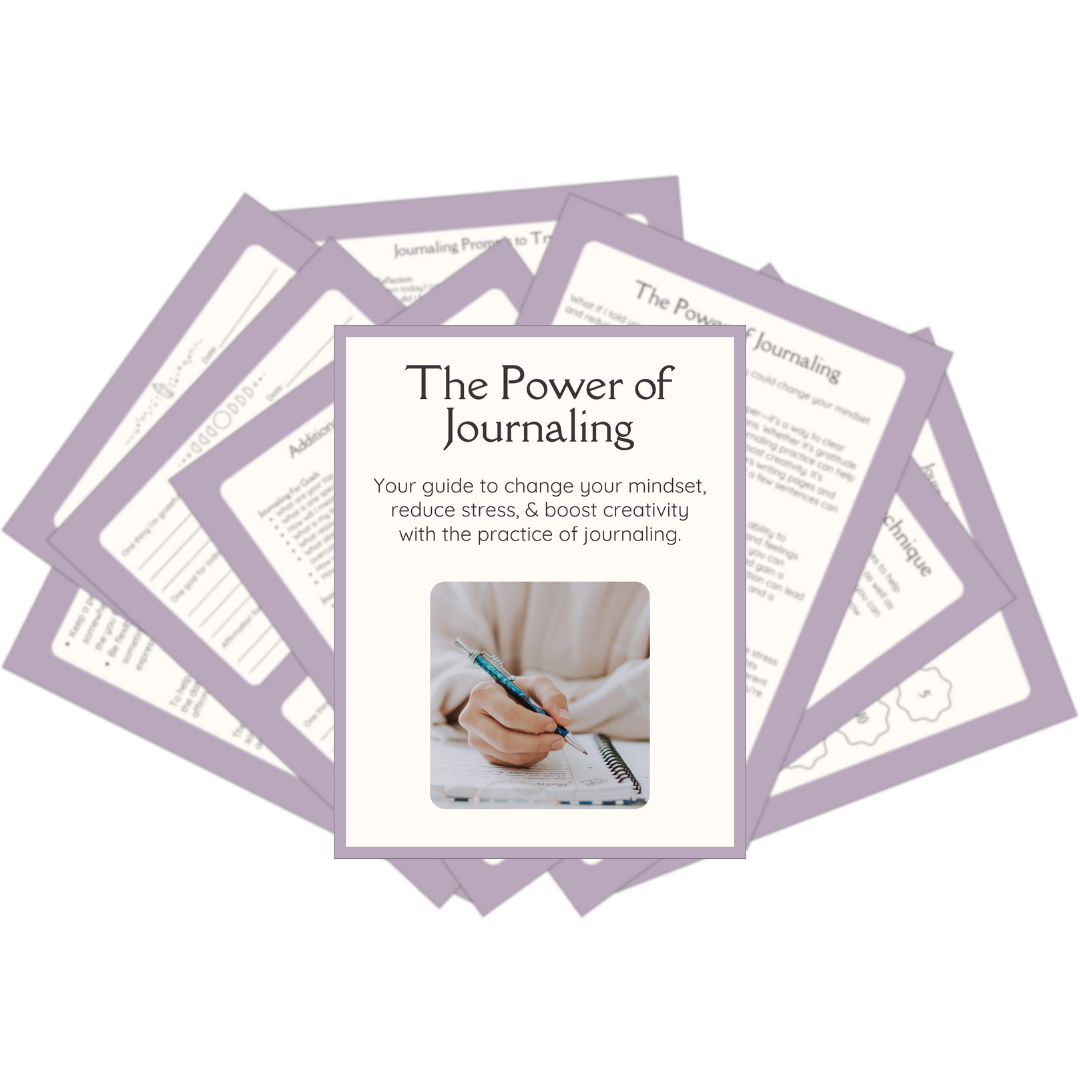The Power of Journaling: How Writing Can Transform Your Mind and Life
In our fast paced modern world finding some calm can feel unattainable. Having a way to process your thoughts and feelings can be really helpful and journaling has been a useful tool to do so for centuries.
Here are 5 benefits of journaling:
Self Reflection - When you write down your thoughts and feelings then you get a different perspective on things. This allows you to process things without the overwhelm and allows you to see patterns in your thoughts and feelings.
Stress Reduction - Writing down your worries and anxieties helps give them some order and helps you identify triggers.
Brainstorming and Imagination - You can also use journaling for ideation and brainstorming. People like Leonardo da Vinci, Charles Darwin, Marie Curie, and Winston Churchill kept journals to record ideas so they wouldn’t be forgotten….how many times has that happened to you?
Goals - Did you know that by simply writing down your goals that you are 42% more likely to achieve them? Besides listing your goals, you can track your progress, work through your challenges, celebrate your achievements, and help keep yourself motivated.
Physical health benefits - Journaling can help with stress reduction, improved sleep quality, and lowering blood pressure.
Ready to give journaling a try? Here are a few tips to help you start:
Choose a method that works for you - You can try a paper notebook, digital file, or even a voice note. Use what works for you and you’ll be more likely to keep at it.
Set aside time - A regular daily practice of even 5-10 minutes can make a difference.
Self-compassion - Write without judgement and express your thoughts and feelings. Don’t worry about what others may think, you don’t need to show it to anyone else.
Try different styles - There are different types of journaling such as gratitude journaling, stream-of-consciousness writing, and using prompts. Each type can help in different ways and you can also try a blend of types.
Feel free to customize your journal and make it work for you. With all these benefits, why not give it a try?
Below you’ll find a resource (The Power of Journaling). This PDF is your guide to journaling. Inside is everything you need to get going with a journaling practice. There are tips, prompts, worksheets, and journaling pages.


